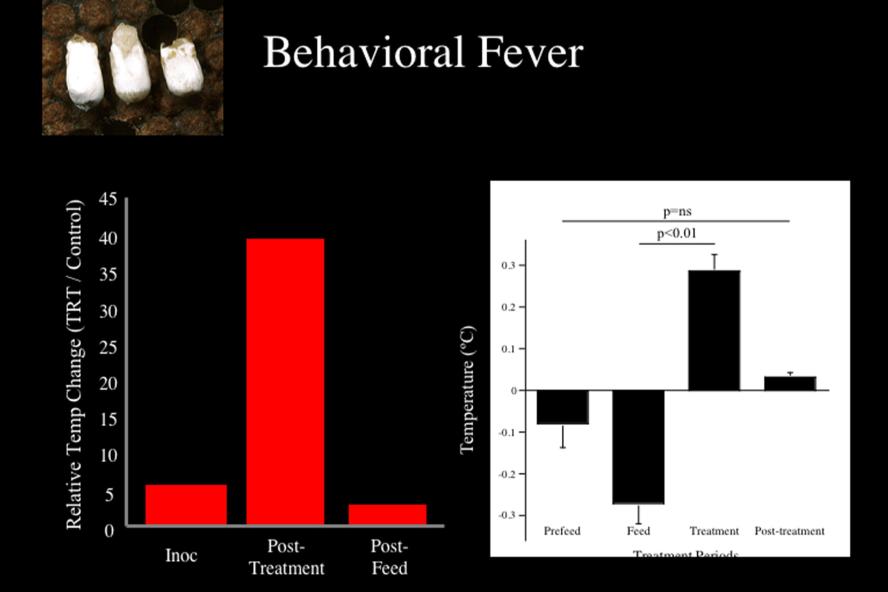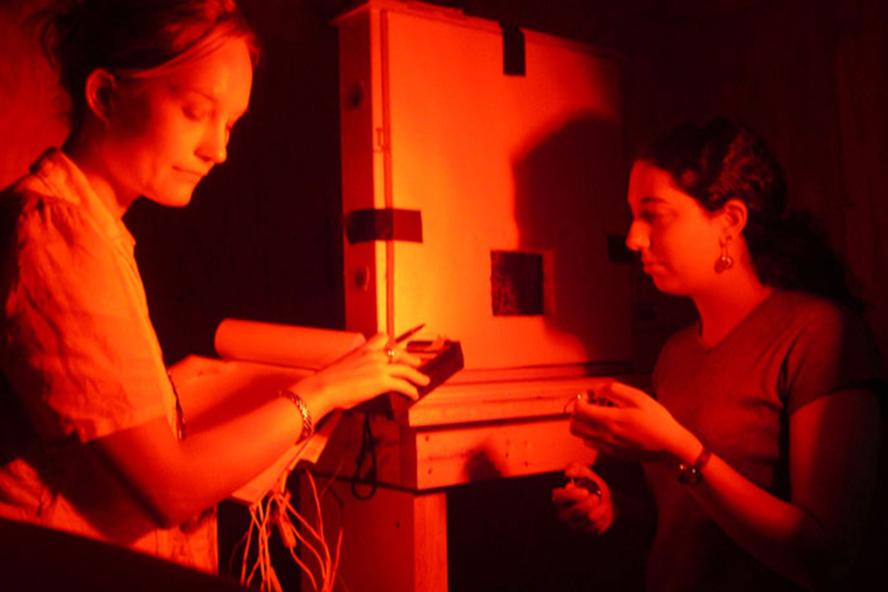Host Responses to Biotic and Abiotic Stressors
Honey bee colonies experience abiotic and biotic stress. My lab works on two behaviors performed in response to stress in the honey bee: the production of a behavioral fever and the activation of heat-shielders.
- Honey bees up-regulate brood-comb temperature in response to infestation with the heat sensitive pathogen, Ascosphaera apis. This fever is preventative as A. apis (the agent which causes the fungal disease commonly called 'chalk brood') is unable to significantly develop in experimental honey bee colonies.
- Heat-shielding is a behavior performed by worker bees: workers clump on the internal location of an externally heated region of the hive. This behavior inhibits the transfer of heat from outside to inside the hive and is thus an additional method of maintaining constant hive temperature. My lab is currently exploring the influence of genetic diversity on a hives ability to mount appropriate stress responses.
Our research goes beyond behavioral observations. In recent years we have explored the honey bee's ability to mount an immune response, and the influence genetic diversity may exert on a colony's ability. With collaborators, we are poised to explore and model how disease outbreaks spread or subside as a function of genetic, physiological, and behavioral responses. This research will provide insight into the disease dynamics social groups face in natural environments.

